“To question well is to teach well. In the skilful use of the question, more than anything else, lies the fine art of teaching” – Charles Degarmo (1911).
Questions stimulate thinking and discussions in the classroom. Asking questions is a way of engaging with students to keep their attention and enable participation. With this as the objective, the management at LAHS felt the need for a workshop on training their secondary teachers on how to formulate and ask effective questions in the classroom.
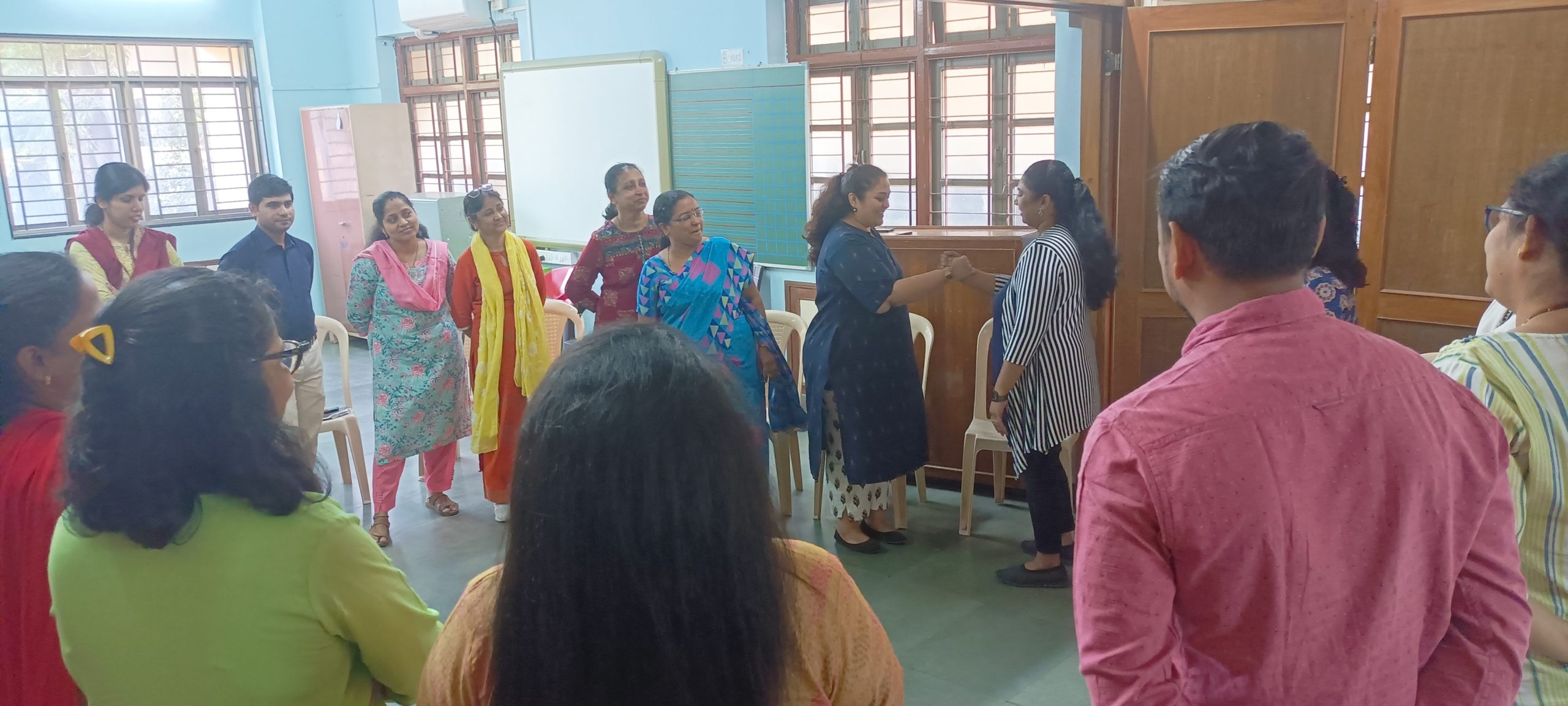 The 2 day experiential workshop on ‘The Art of Questioning ‘ was hands-on , minds-on and stimulating thus providing ample opportunities for the 20+ participants to come up with scores of questions to inquire into and discover solutions. Both the days started with a morning circle and ended with a closure and were planned in such a way so as to ensure engagement of all types of learners. There was a variety of activities like reading texts, watching videos, small group and whole group discussions, creating and presenting visuals to demonstrate learning , individual reflections along with intermittent energisers to provide fun and breaks. Participants gained insights from sessions like Different types of thinking, Using Bloom’s Taxonomy verbs and question stems to formulate questions, Danielson’s rubric on Questioning and Discussion techniques and they followed it up by applying their learning by framing and incorporating questions in their upcoming lesson plans.
The 2 day experiential workshop on ‘The Art of Questioning ‘ was hands-on , minds-on and stimulating thus providing ample opportunities for the 20+ participants to come up with scores of questions to inquire into and discover solutions. Both the days started with a morning circle and ended with a closure and were planned in such a way so as to ensure engagement of all types of learners. There was a variety of activities like reading texts, watching videos, small group and whole group discussions, creating and presenting visuals to demonstrate learning , individual reflections along with intermittent energisers to provide fun and breaks. Participants gained insights from sessions like Different types of thinking, Using Bloom’s Taxonomy verbs and question stems to formulate questions, Danielson’s rubric on Questioning and Discussion techniques and they followed it up by applying their learning by framing and incorporating questions in their upcoming lesson plans.
“The important thing is not to stop questioning , Curiosity has its own reason for existing. “ – Albert Einstein
As teachers, we need to build curiosity in our students and for this we need to provide opportunities for them to ask questions. When students ask questions, they relate to what they are learning. The final session in the workshop was on Question Formulation Technique which is a process designed to develop questioning skills in students. 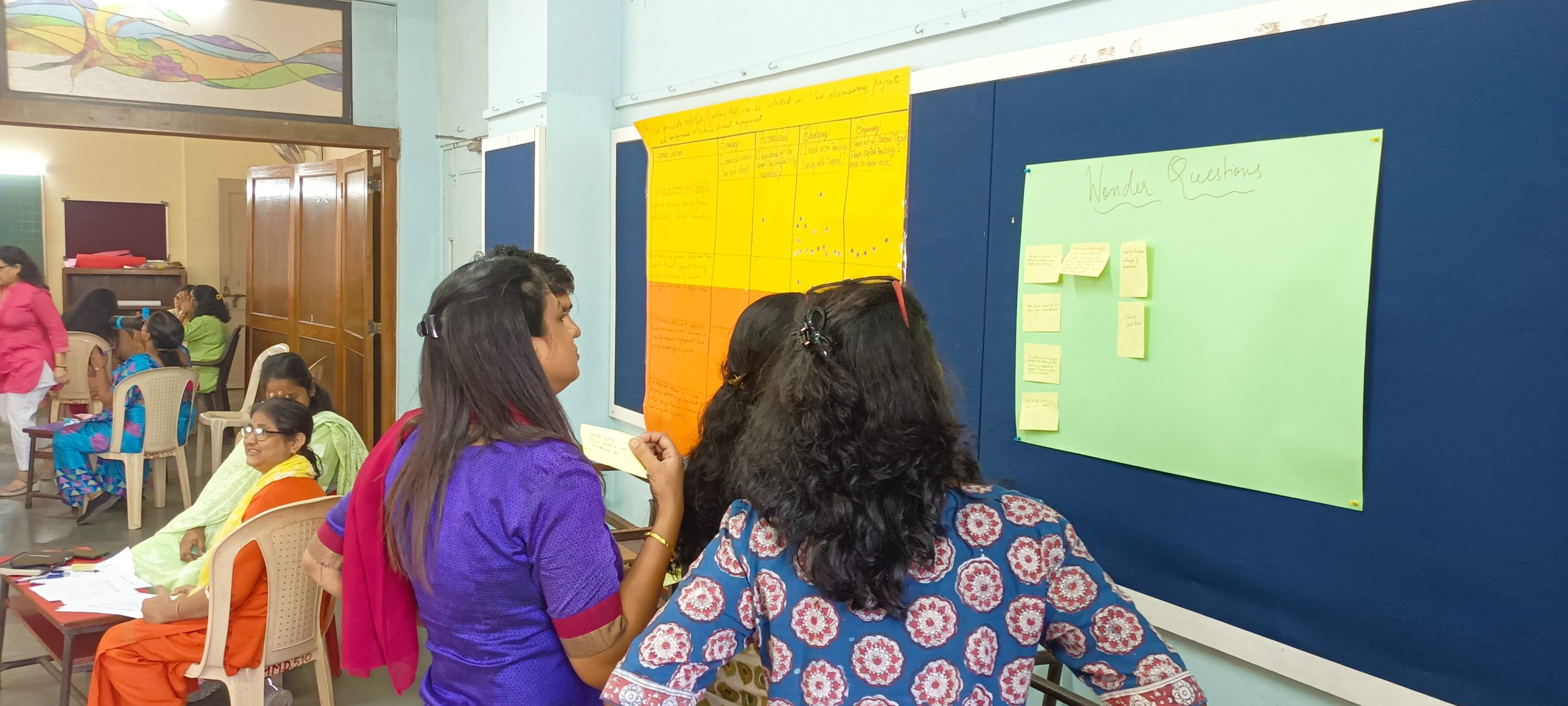 An important aspect of the workshop worth mentioning is that some of the best practices of Teaching and Learning like self -assessment, self-reflections, visible thinking routines etc. were integrated in the sessions which also served as takeaways for participants to use in their classrooms with their students. Both the days were power-packed with energy and enthusiasm and almost all participants agreed when one teacher said, “ Now, I realise that asking questions randomly in the class serves no purpose, instead we need to plan the questions in advance; I have been intentional in including questions to address all types of thinking in my lesson plan”.
An important aspect of the workshop worth mentioning is that some of the best practices of Teaching and Learning like self -assessment, self-reflections, visible thinking routines etc. were integrated in the sessions which also served as takeaways for participants to use in their classrooms with their students. Both the days were power-packed with energy and enthusiasm and almost all participants agreed when one teacher said, “ Now, I realise that asking questions randomly in the class serves no purpose, instead we need to plan the questions in advance; I have been intentional in including questions to address all types of thinking in my lesson plan”.
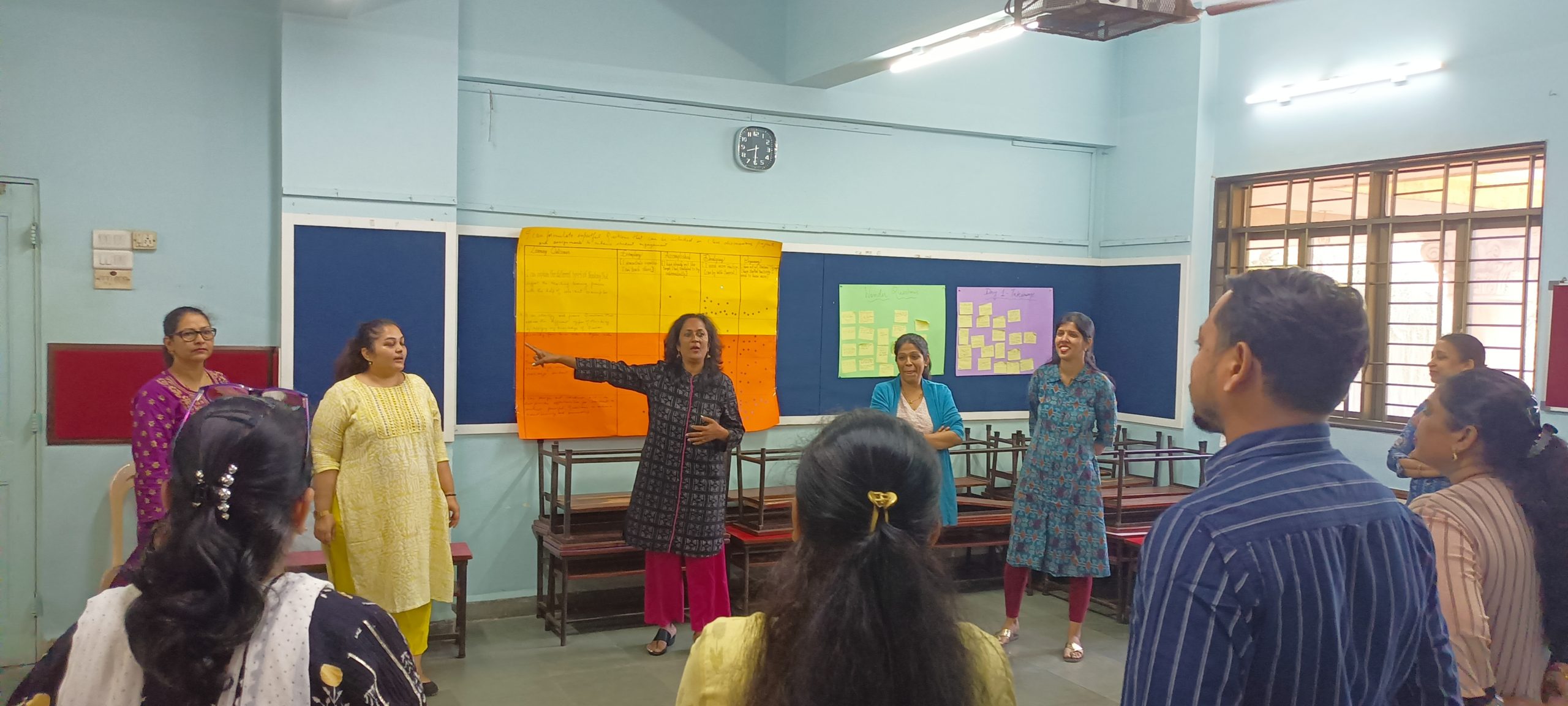 As a facilitator, what helped me was the data related to the teacher resources and lesson plans that I got from the pre-work survey as this helped me pitch the workshop at the right pace and the right level for the teachers. Also, when participants get tangible learning and takeaways from the workshop that they can immediately implement in their classrooms, it motivates them and leaves them excited to want to try something new with their students.
As a facilitator, what helped me was the data related to the teacher resources and lesson plans that I got from the pre-work survey as this helped me pitch the workshop at the right pace and the right level for the teachers. Also, when participants get tangible learning and takeaways from the workshop that they can immediately implement in their classrooms, it motivates them and leaves them excited to want to try something new with their students.
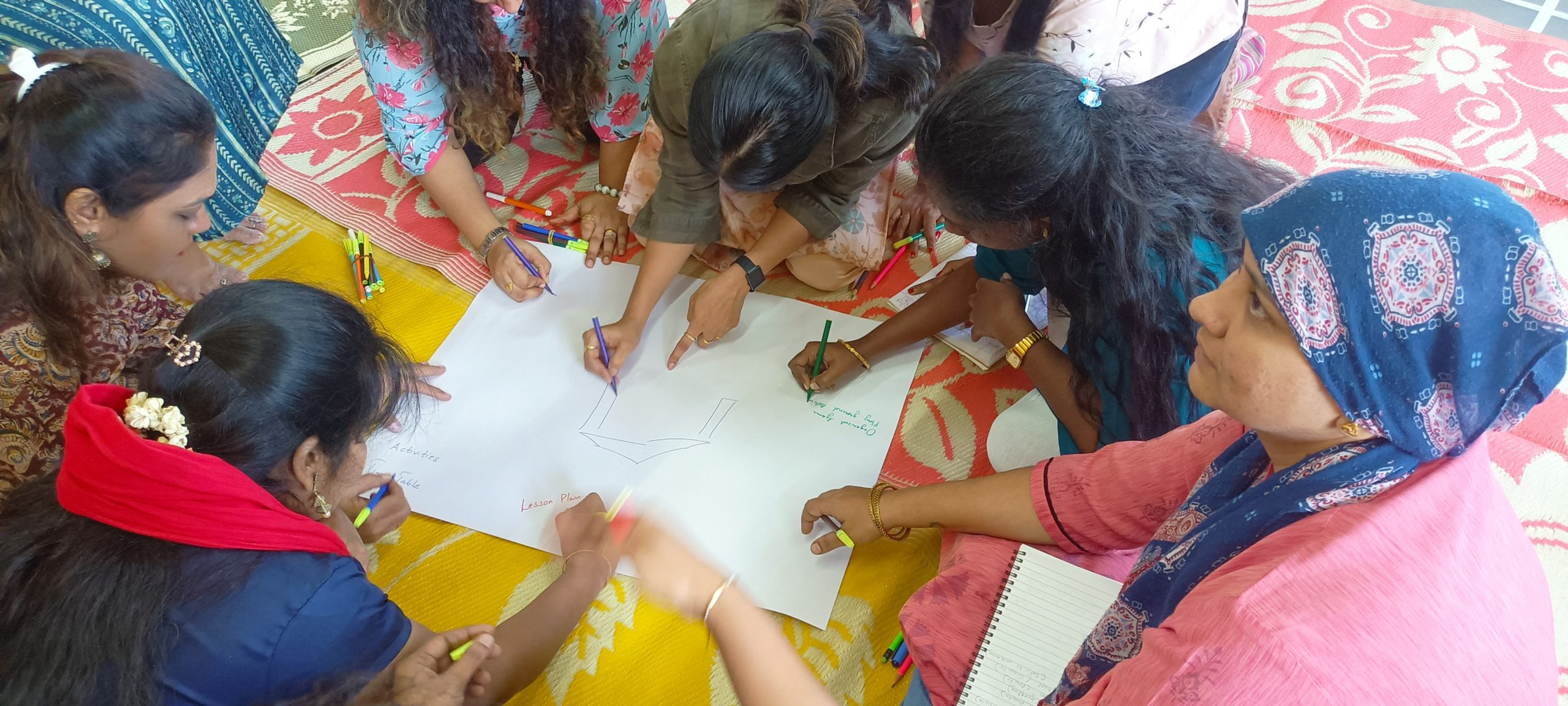
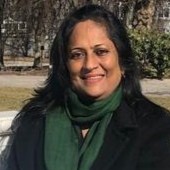
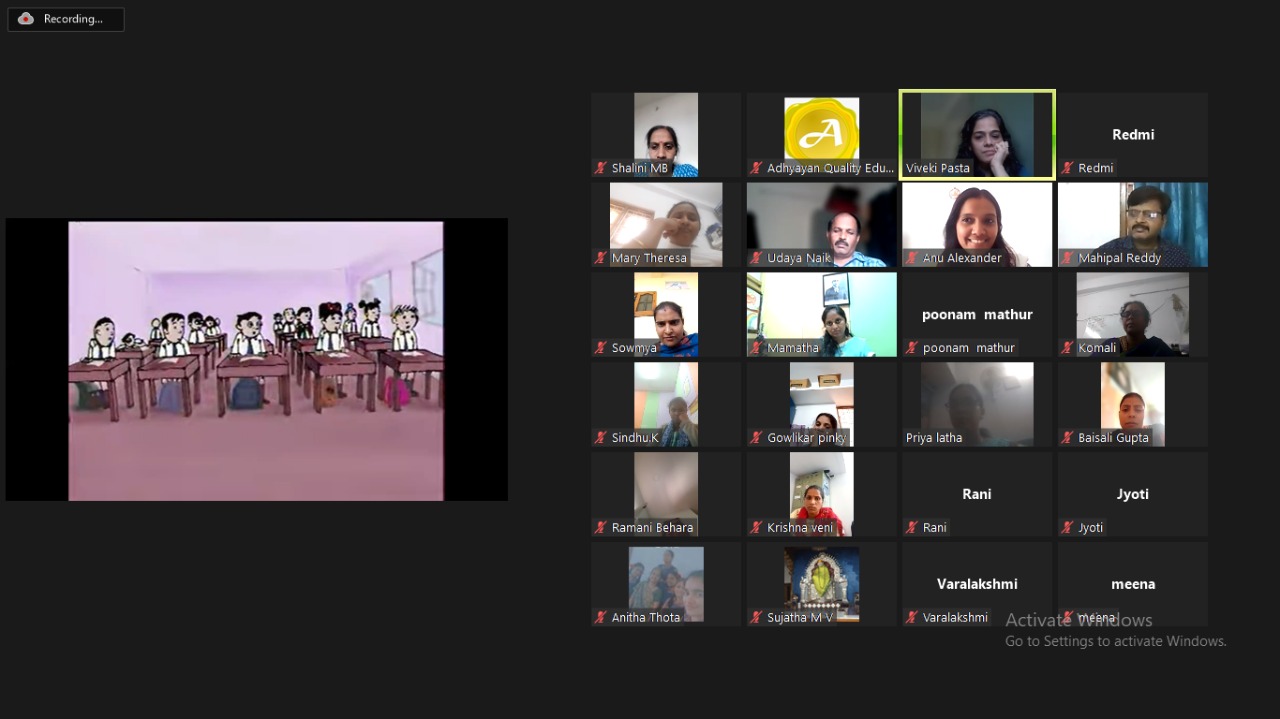
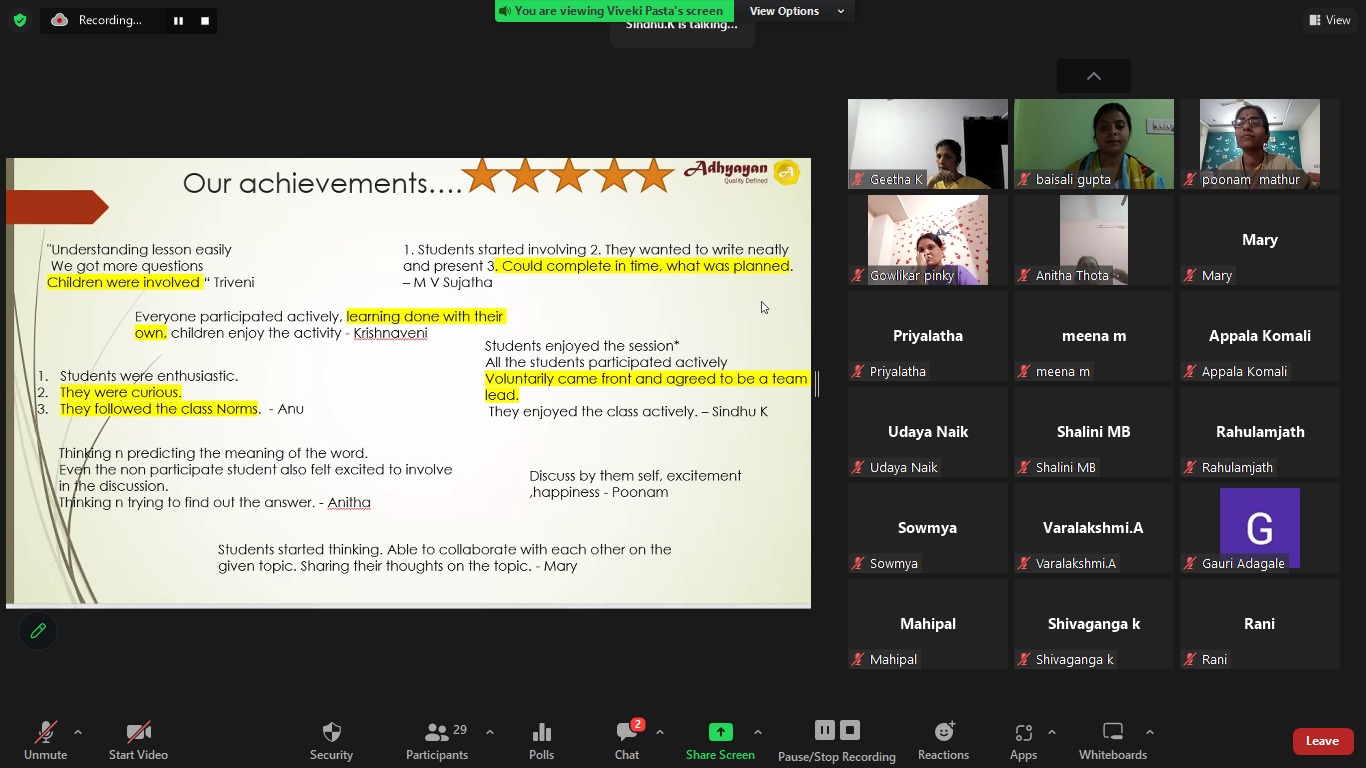
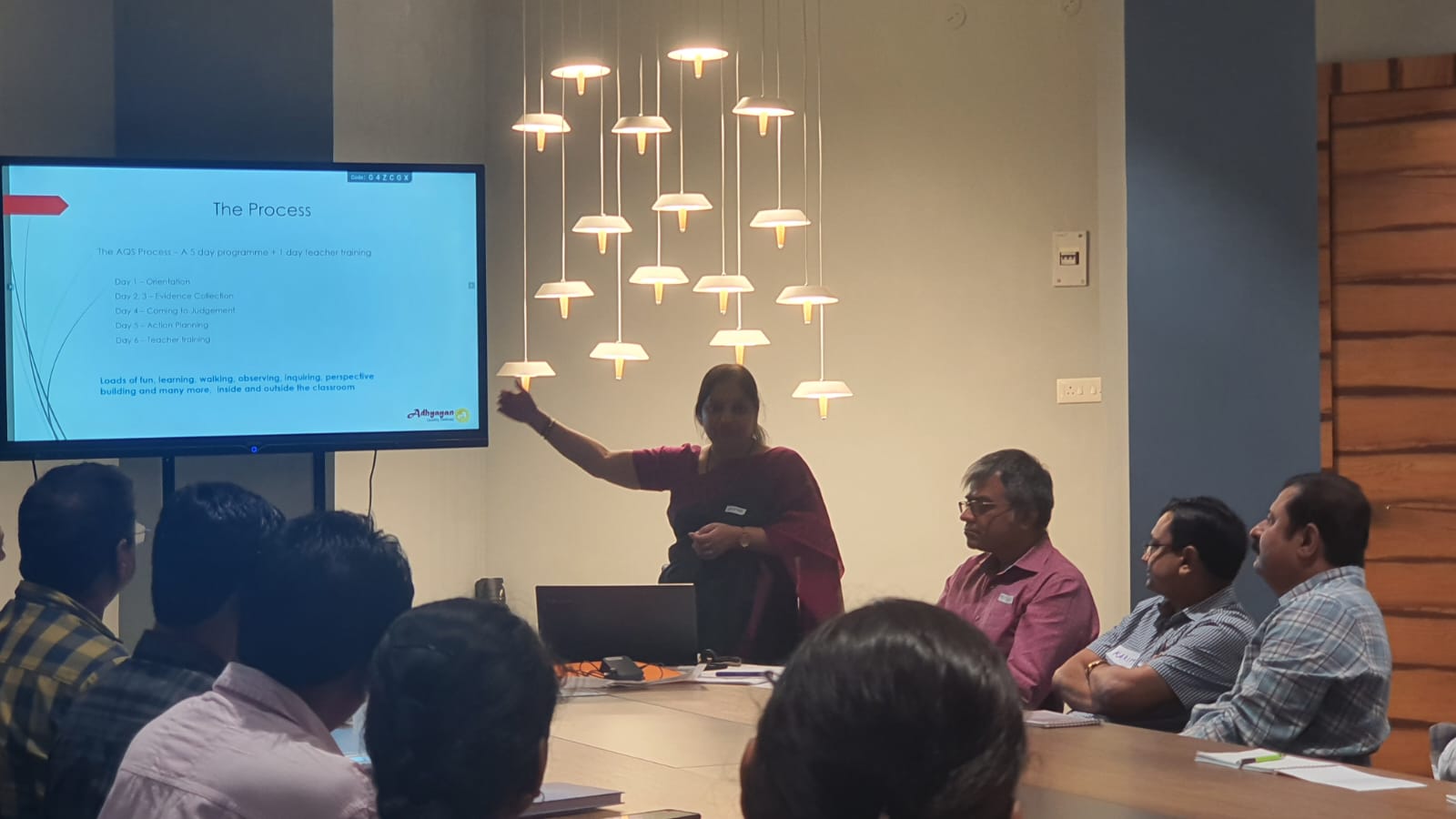 I’m
I’m 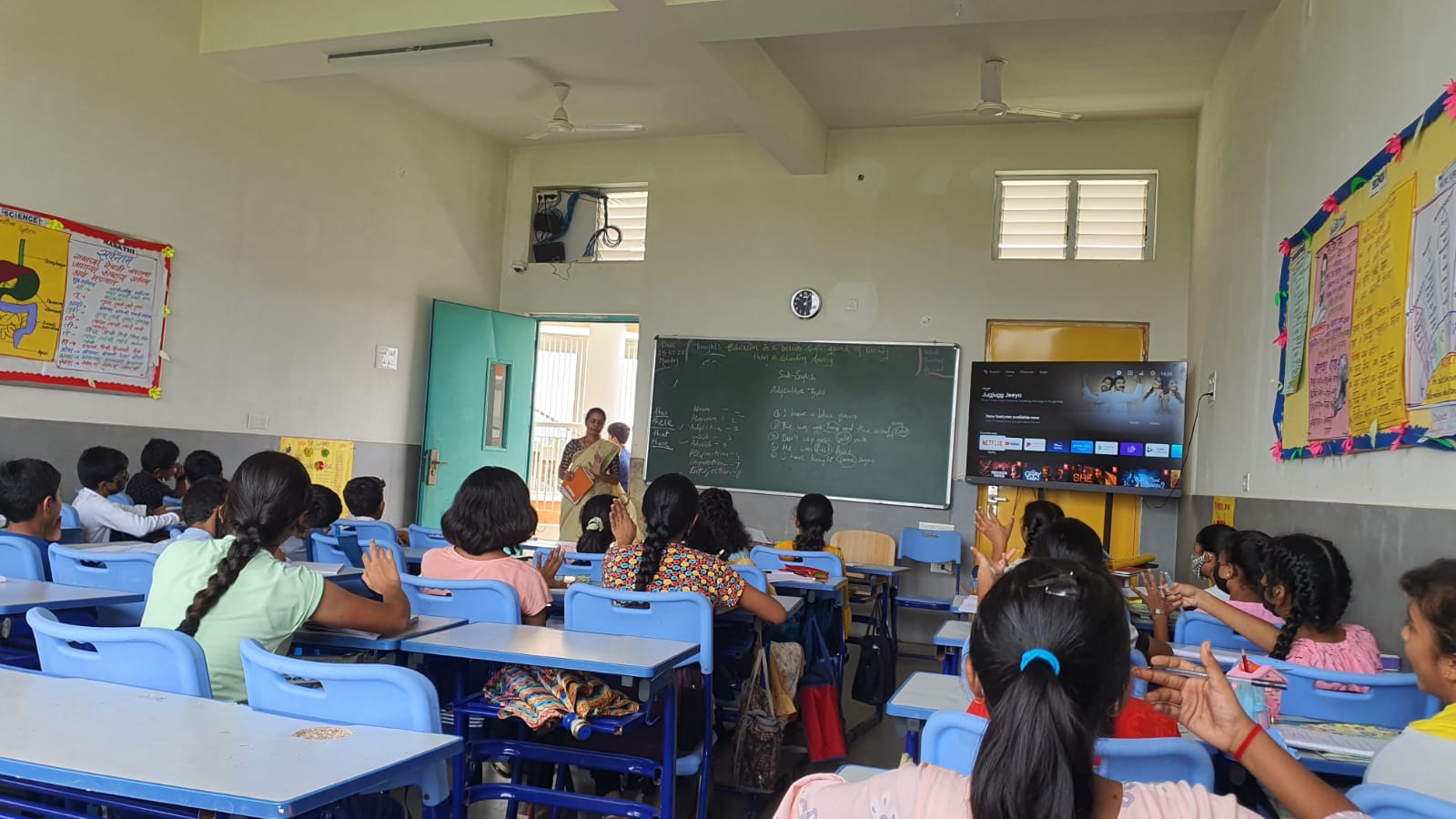
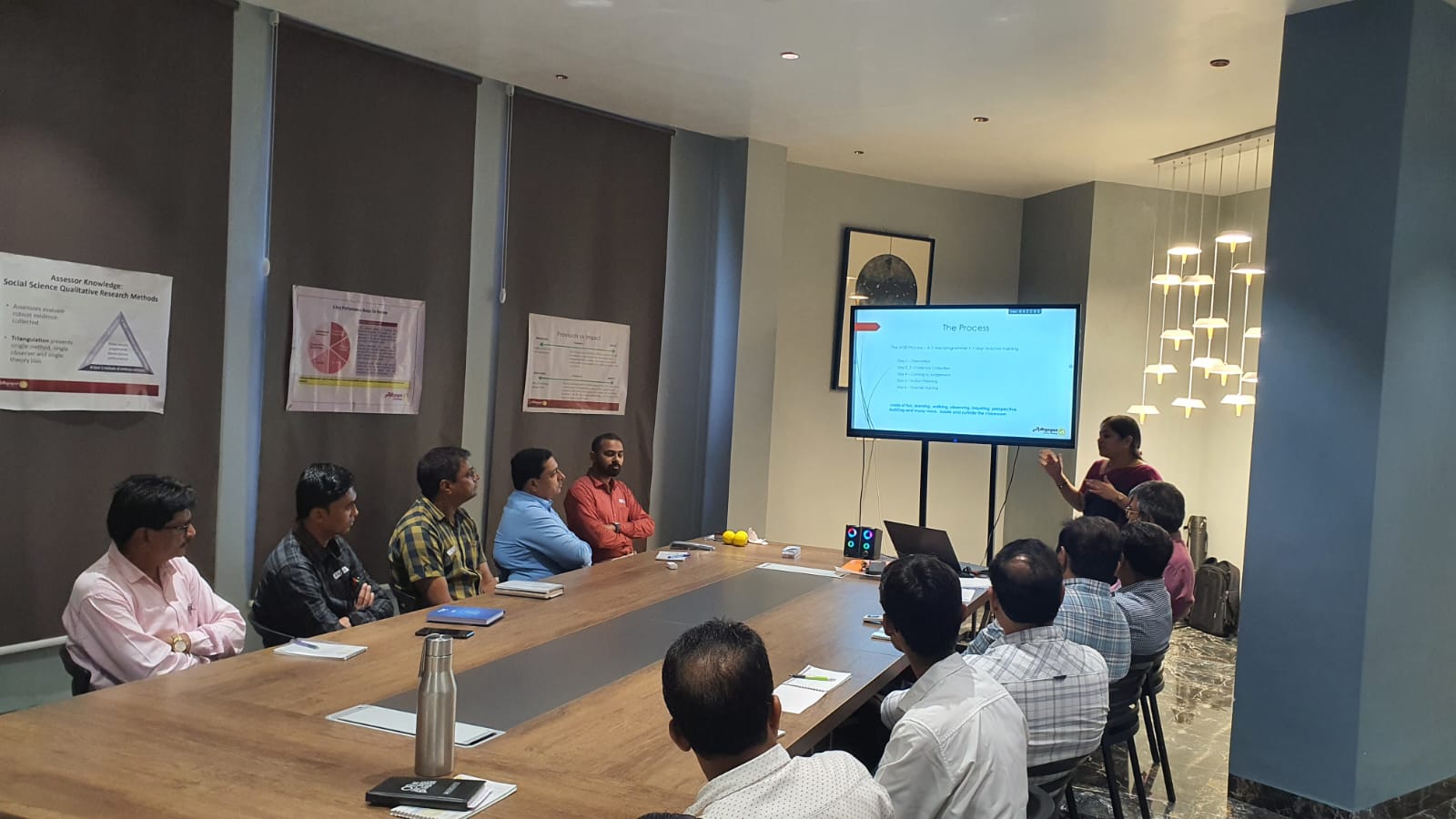
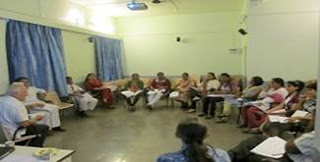
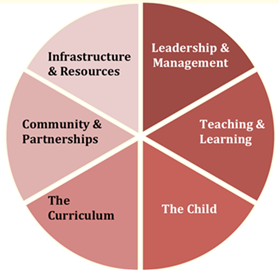
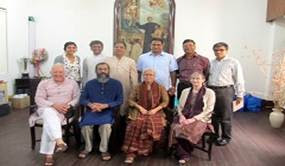
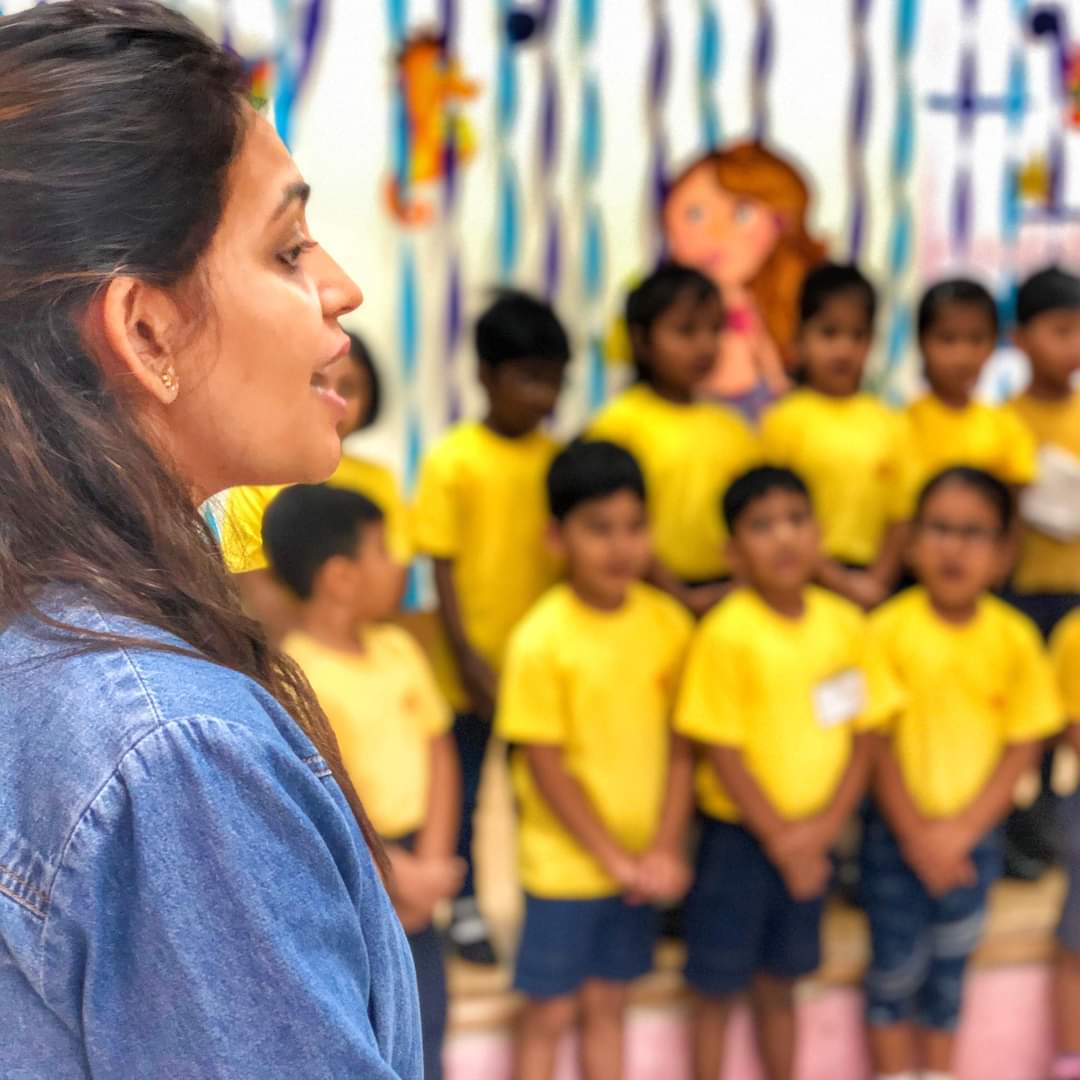
 Workshops are a great way to engage with fellow educators, share instructional practices and learn from experienced members in the field. The 10 different topics that Adyayan had curated were topics that I have been reading about but was eager to implement in the classroom. The workshops were more practical, hands on and gave a lot of understanding on how to go about implementing strategies in the real classroom. The engagement and exercises during the workshop pushed us to participate actively throughout the 90 minutes. Something I really appreciate about Adhyayan is their commitment to time and content!!
Workshops are a great way to engage with fellow educators, share instructional practices and learn from experienced members in the field. The 10 different topics that Adyayan had curated were topics that I have been reading about but was eager to implement in the classroom. The workshops were more practical, hands on and gave a lot of understanding on how to go about implementing strategies in the real classroom. The engagement and exercises during the workshop pushed us to participate actively throughout the 90 minutes. Something I really appreciate about Adhyayan is their commitment to time and content!!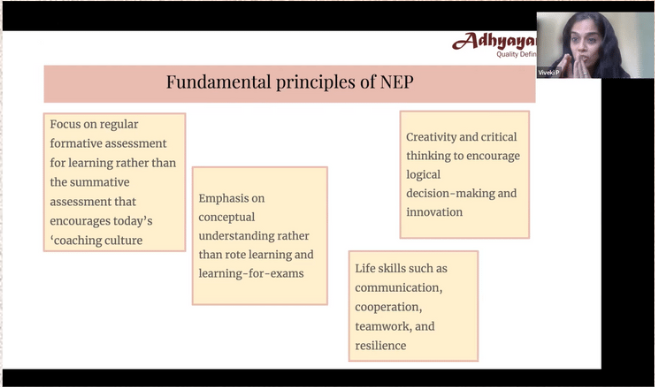 The outcome for me personally from these workshops were to focus on practical application in the classroom and to be able to share the knowledge with my colleagues at school. I have had a very diverse classroom this year in LKG which includes children with special needs, children who have not attended any formal school due to the pandemic, and a couple of children who were performing above basic standards.
The outcome for me personally from these workshops were to focus on practical application in the classroom and to be able to share the knowledge with my colleagues at school. I have had a very diverse classroom this year in LKG which includes children with special needs, children who have not attended any formal school due to the pandemic, and a couple of children who were performing above basic standards. 